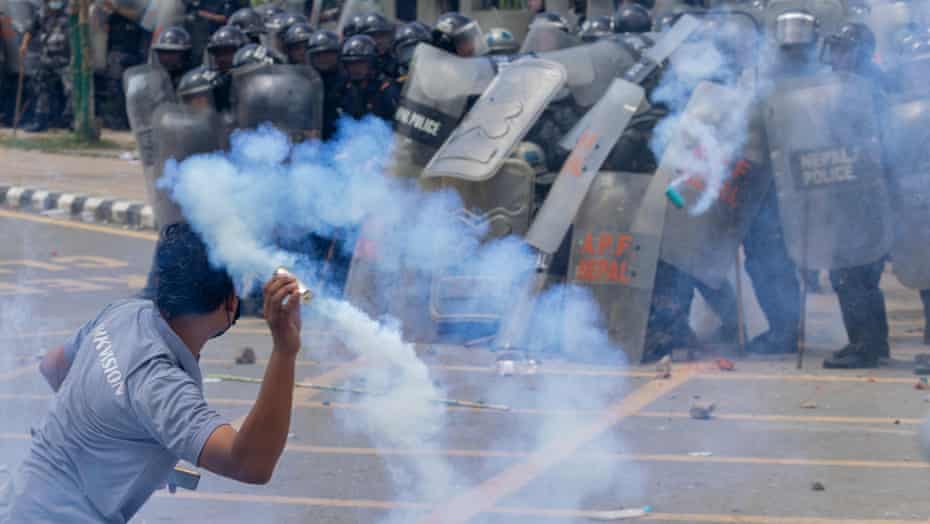At least sixteen people have died following violent clashes in Nepal’s capital, Kathmandu, after the government imposed a sweeping ban on 26 social media platforms, including Facebook, Instagram, WhatsApp, and X.
The ban, which came into effect at midnight on Thursday, has triggered widespread unrest across the country. Businesses and tourism have been severely disrupted, and many citizens have been left unable to communicate with relatives abroad.
Prime Minister KP Sharma Oli’s administration has faced mounting criticism for the decision, which it claims was necessary due to the platforms’ failure to comply with new regulations. Only five companies, including TikTok, met the government’s registration requirements and were exempt from the ban. Other platforms affected include Reddit, LinkedIn, Pinterest, and Signal.
On Monday, tens of thousands of protesters, predominantly young people, took to the streets of Kathmandu in defiance of the order. Demonstrators attempted to breach police barricades and storm the parliament building, prompting security forces to respond with batons, teargas, rubber bullets, and water cannon.
Nepali police confirm incident
Nepali police confirmed that at least sixteen individuals died from injuries sustained during the protests, including gunshot wounds to the head and chest. A curfew was imposed in parts of the capital until 10pm on Monday evening.
The Ministry of Communications and Information Technology stated that the ban followed a court order requiring social media companies to register within seven days. A subsequent notice ordered the deactivation of platforms that failed to comply.
The government insists the move is aimed at curbing hate speech, misinformation, and cybercrime. However, international rights organisations have condemned the ban. The Committee to Protect Journalists warned that it sets a “dangerous precedent for press freedom”.
In the wake of the restrictions, videos on TikTok have gone viral, contrasting the hardships faced by ordinary Nepalis with the lavish lifestyles of politicians’ children.
On Sunday, dozens of journalists gathered in Kathmandu to protest, holding placards bearing slogans such as “No shutdown of social networks, no silencing of voices”, “Freedom of expression is our right”, and “Democracy hacked, authoritarianism back”.
Prime Minister Oli defended the government’s stance in a speech, stating, “The independence of the nation is greater than the loss of jobs of a handful of individuals. How can it be acceptable to defy the law, disregard the constitution, and disrespect national dignity, independence and sovereignty?”
Although Nepal has traditionally upheld freedom of expression, critics argue that the Oli government is increasingly overstepping its bounds. In 2023, TikTok was banned for nine months over concerns relating to hate speech and cybercrime, but was later reinstated after agreeing to register with the authorities.
Parliament is currently debating a series of draft bills that could see individuals fined or imprisoned for content deemed contrary to the “national interest”. The proposed legislation would also grant the government powers to shut down newspapers and revoke journalists’ licences.



